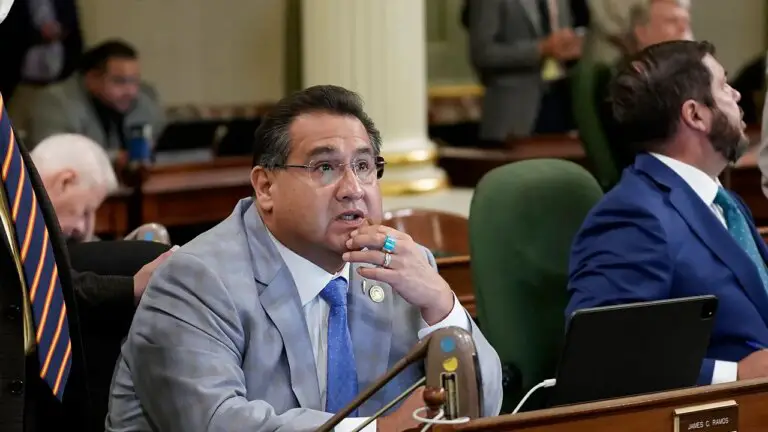California Governor Signs Laws to Protect Native American Remains and Artifacts
Governor Gavin Newsom took a significant step forward on Tuesday by signing two new laws designed to ensure that California’s public universities comply with repatriation laws, aimed at returning Native American remains and cultural artifacts. These regulations come after decades of struggle to give these items back to their rightful owners.
Repatriation laws have long mandated that government entities return Native American remains and sacred artifacts, such as prayer items and ceremonial objects, to tribal communities. Sadly, the state auditor’s recent findings revealed that many university campuses have failed to adhere to these laws due to financial constraints and a lack of clear guidance from university leadership.
James C. Ramos, the first Native American to serve in the California Legislature, underscored the significance of returning these items to tribes, stating that the failure to do so has denied “the Indian people the right to bring closure to family issues and historical trauma.”
Ramos pointed out that California still grapples with its unfortunate history and treatment of its Indigenous communities. The newly signed laws oblige the California State University system and urge the University of California system to report annually on their efforts to review and return these items.
In 2019, Governor Newsom issued an official state apology for California’s historical mistreatment and violence against Native Americans. These repatriation laws are among the numerous bills recently approved by the governor.
The state auditor’s 2020 report highlighted inadequate policies for returning Native American remains and artifacts within the University of California system. While the Los Angeles campus made significant returns, the Berkeley campus returned only about 20% of these items. The auditor’s office later recognized some progress within the system.
For years, the University of California, Berkeley, held onto Native American remains that belonged to the Santa Ynez Band of Chumash Indians. It wasn’t until 2018 that these remains were finally returned to the tribe.
Kenneth Kahn, the tribe’s chairman, expressed his disappointment at the delay in returning these items, stating that it’s unfortunate that it took the force of law to prompt universities to act. He mentioned, “We’ve been asking for years.”
The state auditor’s report in June indicated that over half of the 21 California State University campuses with Native American remains or cultural artifacts had not returned any items to tribes. Some of these items were used for archaeological research, but the new laws prohibit such use.
The University of California affirmed its commitment to return Native American remains and artifacts respectfully, despite not taking an official stance on the new legislation. California State University is also cooperating with the requirements to inventory and handle these items properly.
In addition to these measures, Governor Newsom signed two other bills. One enhances protections for sexual assault survivors facing retaliatory lawsuits, ensuring that survivors’ statements are protected against defamation lawsuits if their allegations are not knowingly false or reckless. The second, known as the Delete Act, provides a streamlined process for Californians to request the deletion of their personal data from data brokers operating in the state.
These legislative actions mark an essential step towards protecting Native American heritage and the rights of survivors, while also addressing privacy concerns in a rapidly evolving digital age.

